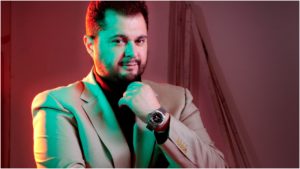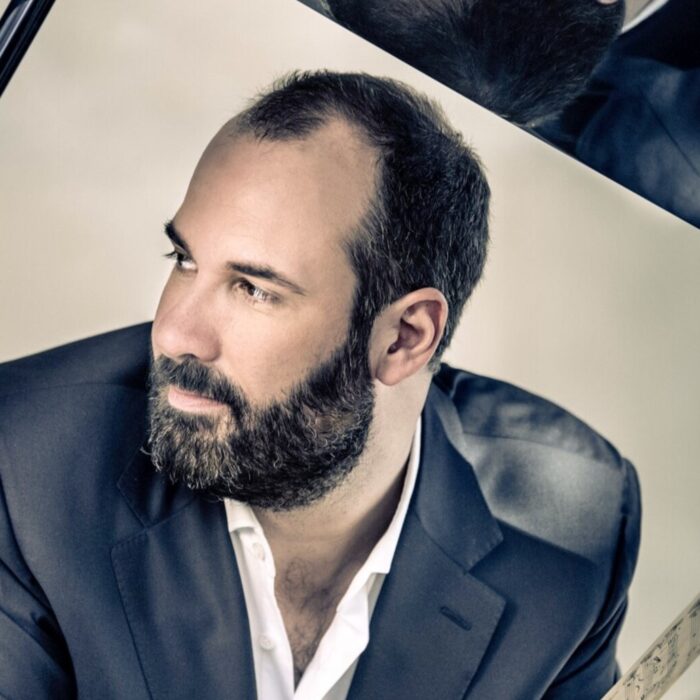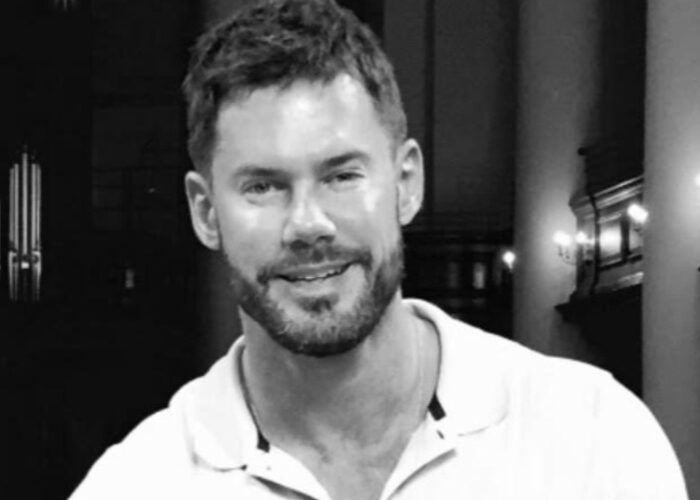
More Than Vocal Fireworks – Tenor Celso Albelo on Musical Structure in ‘Rigoletto,’ The High F in ‘Puritani’ & Complex French Operas
By David SalazarCelso Albelo possesses a glorious instrument that allows him to sing a wide range of bel canto operas with great ease.
But in speaking with the tenor, it became very clear that he doesn’t take a single thing for granted. He might be able to whip up a few phrases without thinking about it or throw off the highest of high notes with fearlessness, but he doesn’t care to. Everything is carefully studied and calculated by the Spanish tenor.
Playing the Villain
In just a few weeks he heads to Orange to return to the role of villainous Duke in Verdi’s “Rigoletto,” a character he has interpreted close to a dozen times since 2012. Safe to say, he could probably sing it in his sleep. But Albelo goes back and back to each phrase and reconsiders it.
Just take a discussion we had on how he views the duet between the Duke and Gilda, “E il sol del anima.” Most might just brush it off as a duet with an opening solo for tenor, but Albelo asks us to reconsider what Verdi intended.
“We can see it from different points of view. It’s either an aria where he settles things down to sell Gilda a certain image or it’s all part of the plan in a duet. It’s really about how you want to highlight it,” he analyzed. “It’s fun rethinking these musical structures because they highlight different dramatic ideas as well. It can be an aria, with Gilda falling into the trap and accompanying him. Or it’s a duo that he starts and maybe hints about some affection between the two.”
He also feels the same way about the famed quartet “Bella figlia del amore.”
“I sometimes see the quartet as an aria with vocal accompaniment,” he noted.
Ultimately, these conversations only highlight a bigger narrative with the role overall.
“It’s an incredible opera and I have so much fun singing this role. You get to be a libertine. I get to be someone completely different from myself,” he explained. “He is everything I am not. He has no morals. Wherever he goes, he enters like an elephant in a shop. He wants everyone to notice him. He has fun and you have to do the same in the singing.”
Turning to Purity
After “Rigoletto,” Albelo heads to Montpellier and Savonlinna for two different runs of “I Puritani” another opera the tenor has sung countless times at such venues as the Teatro Real de Madrid, the Victorian Opera in Melbourne, and the Teatro Comunale di Modena, among several others.
For the tenor the role of Arturo is a rather complex one, but not necessarily for the reasons one might expect.
“Arturo sings in the first and third act. He sings nothing in the second,” he explained. “So you have to be mindful of your physique. That can be hard.”
The opera is famous for its high tessitura, the tenor constantly asked to sing lengthy phrases in the tenorial stratosphere. But for Albelo, the greatest complexity in the role that stems from the character itself.
“He sings a lot of beautiful melodies, but a lot of the character is in the recitative and finding the equilibrium between the recitativo sections and the lyric parts is essential to developing the tension in the character,” he explained. “Arturo loves his country and his woman. He sings, ‘Son salvo. Al fin son salvo. O patria.’ The there is silence. And then: ‘O amore.,’” the tenor sang during our interview.
“First he talks of his country with a light and luminous sound. And then right after, he thinks about the fact that his love for country has cost him his true love. That happens in just a few bars. The entire third act is filled with these tiny details that really give the character true meaning and depth.”
This is the kind of depth of interpretation that the tenor finds more difficult than singing the famed High F that Bellini wrote into the score at the climax of the final score. Many tenors ignore the marking simply because they can’t do it. For Albelo, the execution of the note is not the issue.
“I’ve been singing this role for 12 years. Sometimes I feel like doing it and sometimes I don’t,” he noted before expounding his reasoning. “It depends on the character interpretation.”
He went on to explain that he has a love-hate relationship with this particular passage of the opera because of the expectations it has created over the years and how it looms large over everything else a tenor has to accomplish with the role.
“The problem with this note is that you do all this intricate work on other sections and it makes no sense for it to be all about whether or not I hit a high note or not,” he noted. “It’s just one note and nowadays it is actually a bit strange in the context of everything else you are singing before. People tend to pay more attention to this one note and it can be a bit annoying after you’ve spent an hour working different colors and details in previous passages.
“At this point, it’s not about whether I have it or not. I have it. But I prefer to delve deeper into other aspects of my singings. It can’t just be about fireworks.”
A French Path
Looking ahead the tenor is starting to embrace a deeper dive into the repertoire of French composers. While he has sung some operas by French composers, the tenor noted that he is in love with this repertoire and cited Berlioz’s “La Damnation de Faust” as one work he is excited to take on in Valencia in 2018.
“I saw the music and I fell in love. It captivated me. It is so difficult but a true miracle,” he noted before revealing what really has him most excited about French opera. “When you sing a lot of bel canto, you interpret very linear characters. It’s often hard to delve deeper or find a more profound meaning in them. But in the French repertoire, like ‘Werther,’ they have this incredibly dense psychology. And in ‘La Damnation de Faust,’ you start to see all the possibilities the character can give you in just two-and-a-half hour. It really excites me.”
But before he ever steps into the world of Berlioz, he will head over to Bilbao for his first ever Des Grieux in “Manon,” another character he finds eternally fascinating.
“Des Grieux is all about love over anything else,” he noted. “He will leave his family, values, religion for love. It’s maybe a love that is too difficult for modern and more selfish audiences to understand. We live in a world where all of us are a bit more selfish. If someone is going to hurt us, we move away. We don’t have the same sense of forgiveness he has. I just love this depth of exploration.”


